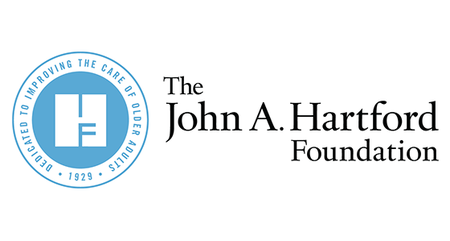New Grants Totaling Over $500,000 Approved by JAHF Board of Trustees

The John A. Hartford Foundation Board of Trustees approved two grants totaling $524,286 that will spread age-friendly care by promoting the use of person-centered outcome measures and creating a learning collaborative that will develop state policies to support both family caregivers and direct care workers.
Supporting Age-Friendly Health Systems: Expanding the Person-Centered Outcome Measures to Payers to Drive Value-Based Care ($425,000 for 2 years)
National Committee for Quality Assurance (NCQA)
This grant supports the National Committee for Quality Assurance to continue promoting the use of person-centered outcome measures, which are health care quality measures that evaluate how well clinicians address “What Matters” to older adults – an essential component of the Age-Friendly Health Systems 4Ms Framework. Best care for older adults is guided by the unique health goals and priorities of the individual, yet existing health plan quality indicators do not effectively assess whether goals are being identified and met. This two-year project aims to embed person-centered outcome measures in publicly reported health plan measure sets by launching a learning collaborative of three to five Medicare Advantage Special Needs Plans to identify structured processes for goal tracking and data reporting. It will also build demand for the measures among state Medicaid programs, health plans, clinicians, and consumer advocacy organizations through the dissemination of resources to guide the person-centered outcomes approach.
State Learning Collaborative on Integrating Direct Care Workforce and Family Caregiving Policies ($99,286 for 8 months)
ADvancing States
This grant to ADvancing States will build on the work of the Administration for Community Living’s Direct Care Workforce Strategies Center by developing a learning collaborative for up to eight states to develop policies that support both family caregivers and direct care workers. The learning collaborative will include states seeking to reach older adults and people with disabilities who are low-income and minority, live in rural settings, have Alzheimer’s disease or other dementias, have limited English proficiency and may be at risk of nursing home placement. ADvancing States will host a full-day session on paid and unpaid caregiving issues at its annual Home and Community-Based Services Conference, providing the learning collaborative with opportunities to engage in-person and with other states. The learning collaborative will result in customized action plans for participating states to facilitate the implementation of policies such as creating new caregiver benefits or training programs for case managers on integrating input from direct care workers and family caregivers into care plans.
